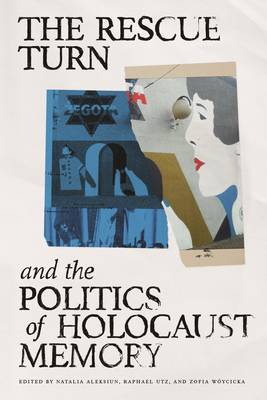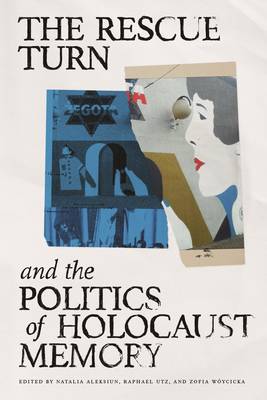
- Afhalen na 1 uur in een winkel met voorraad
- Gratis thuislevering in België vanaf € 30
- Ruim aanbod met 7 miljoen producten
- Afhalen na 1 uur in een winkel met voorraad
- Gratis thuislevering in België vanaf € 30
- Ruim aanbod met 7 miljoen producten
The Rescue Turn and the Politics of Holocaust Memory
Ido de Haan, Sofie Lene Bak, Mark Roseman, Anna Bikont, Anna Marie Droumpouki, Sarah Gensburger, Liliana HentoshOmschrijving
Examining the uses--and misuses--of memory of aiding Jews during the Holocaust.
This volume considers the uses and misuses of the memory of assistance given to Jews during the Holocaust, deliberated in local, national, and transnational contexts. History of this aid has drawn the attention of scholars and the general public alike. Stories of heroic citizens who hid and rescued Jewish men, women, and children have been adapted into books, films, plays, public commemorations, and museum exhibitions. Yet, emphasis on the uplifting narratives often obscures the history of violence and complicity with Nazi policies of persecution and mass murder. Each of the ten essays in this interdisciplinary collection is dedicated to a different country: Belarus, Denmark, France, Germany, Greece, North Macedonia, the Netherlands, Poland, Slovakia, and Ukraine. The case studies provide new insights into what has emerged as one of the most prominent and visible trends in recent Holocaust memory and memory politics. While many of the essays focus on recent developments, they also shed light on the evolution of this phenomenon since 1945.
Specificaties
Betrokkenen
- Auteur(s):
- Uitgeverij:
Inhoud
- Aantal bladzijden:
- 410
- Taal:
- Engels
Eigenschappen
- Productcode (EAN):
- 9780814349502
- Verschijningsdatum:
- 05/03/2024
- Uitvoering:
- Hardcover
- Formaat:
- Genaaid
- Afmetingen:
- 155 mm x 231 mm
- Gewicht:
- 639 g

Alleen bij Standaard Boekhandel
Beoordelingen
We publiceren alleen reviews die voldoen aan de voorwaarden voor reviews. Bekijk onze voorwaarden voor reviews.







